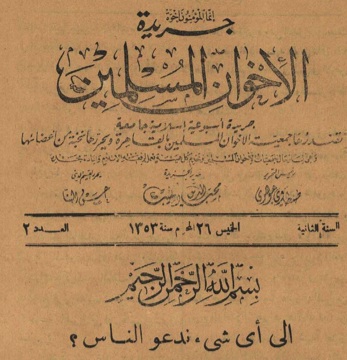
The Arab Spring has morphed into the pundits’ pandering about Islamism. An example, and there are many to choose from in the current political orgy of right-wing rhetoric, is in a New York Times op-ed by John M. Owen IV. It seems that when Muslims elect representatives who are Muslim they must be a new species called “Islamists.” Yes, throughout the Middle East, where the dominant religion happens to be Islam and there happen to be many forms of Islam, there is a strong interest in electing leaders who espouse religious values. In part this is due to decades of dictators who barely gave lip service to Islam and did all in their power to demonize those Muslims who opposed them. But just look at the current GOP field of candidates and tell me that voting on religious values is somehow unique to Muslims. Do read what Owens writes and then my reasons for being critical of this Islamist hunting…
Why Islamism Is Winning
By JOHN M. OWEN IV, The New York Times, January 6, 2012EGYPT’S final round of parliamentary elections won’t end until next week, but the outcome is becoming clear. The Muslim Brotherhood will most likely win half the lower house of Parliament, and more extreme Islamists will occupy a quarter. Secular parties will be left with just 25 percent of the seats.
Islamism did not cause the Arab Spring. The region’s authoritarian governments had simply failed to deliver on their promises. Though Arab authoritarianism had a good run from the 1950s until the 1980s, economies eventually stagnated, debts mounted and growing, well-educated populations saw the prosperous egalitarian societies they had been promised receding over the horizon, aggrieving virtually everyone, secularists and Islamists alike.
The last few weeks, however, have confirmed that a revolution’s consequences need not follow from its causes. Rather than bringing secular revolutionaries to power, the Arab Spring is producing flowers of a decidedly Islamist hue. More unsettling to many, Islamists are winning fairly: religious parties are placing first in free, open elections in Tunisia, Morocco and Egypt. So why are so many Arabs voting for parties that seem politically regressive to Westerners?
The West’s own history furnishes an answer. From 1820 to 1850, Europe resembled today’s Arab world in two ways. Both regions experienced historic and seemingly contagious rebellions that swept from country to country. And in both cases, frustrated people in many nations with relatively little in common rallied around a single ideology — one not of their own making, but inherited from previous generations of radicals. Continue reading The Islamists are coming, the Islamists are coming




